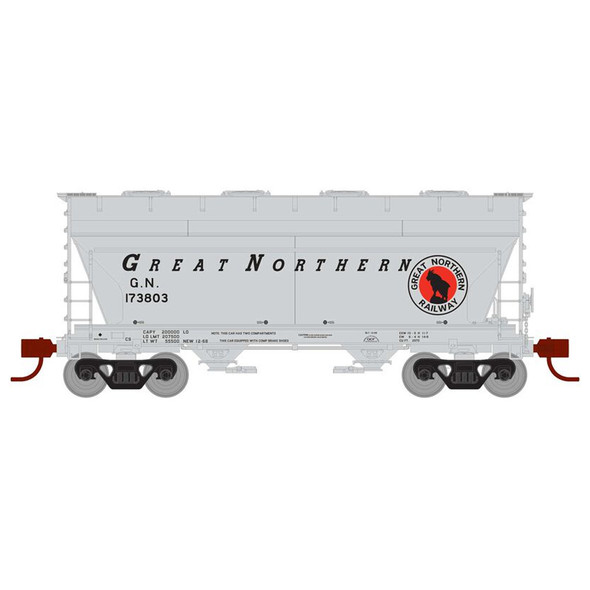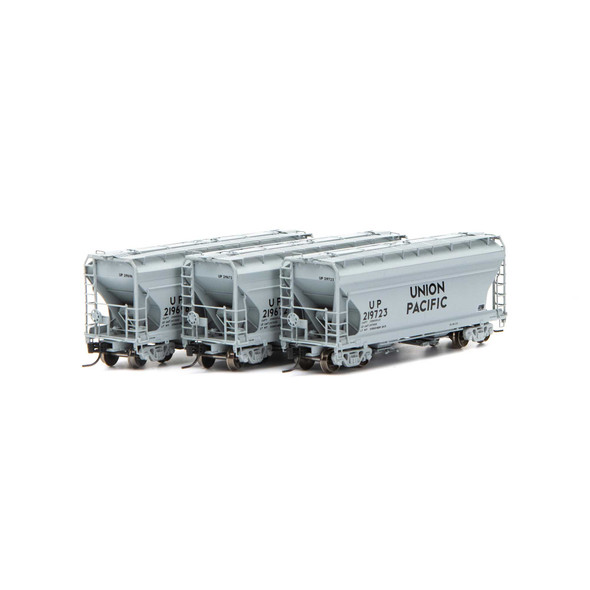Athearn
Athearn ATH23343 ACF 2970 Covered Hopper GN #173824 Freight Car N Scale
- SKU:
- ATH23343
- UPC:
- 797534233430
Description
Key Features
Fully assembled and ready for your layout
Photo-etched roof walks
Separately applied wire grab irons and brake piping
Detailed underbody
Razor sharp painting and printing
McHenry knuckle spring coupler installed (body mounted)
Packed in a jewel case
For the first hundred years or so of railroad history, dry bulk items such as sand and cement were put into bags or boxes and loaded into boxcars for shipment. This process required considerable labor to load and unload. In the 20th century a new type of car, the covered hopper, was developed. As the name implies, these cars were essentially an open top hopper with a roof and hatches added for loading. At first they were just used for special commodities, while cement was still hauled in boxcars. This began to change dramatically in the late 1940's as the railroads ordered more and more covered hoppers. By the 1970's almost all dry bulk items from sand to grain to plastic pellets were shipped in covered hoppers.
One of the more important builders of covered hoppers was American Cr & Foundry (ACF). The first ACF covered hoppers were rib-side cars, like many others of the time. In the 1960's ACF eliminated the supporting ribs and started building what they called the Center Flow(R) hopper with a smooth, rounded side. The cars were built at several ACF plants, but the Huntington, West Virginia plant built only Center Flow cars since their inception and was the primary builder.
The first 2-bay 100 ton 2970 Center Flow cars built at Huntington weree part of a 150 car order for Chicago & NorthWestern, under building lot 11-02475, with an "on track" date of August 19th, 1966. The largest batch was building lot 11-02493, 500 cars built for the Rock Island, on track May 8th, 1967.
Specifications
PROTOTYPE MANUFACTURER: American Car & Foundry
COUPLER STYLE: McHenry Knuckle
ERA: 1960 - Present
Minimum Age Recommendation: 14 years
Is Assembly Required: No










